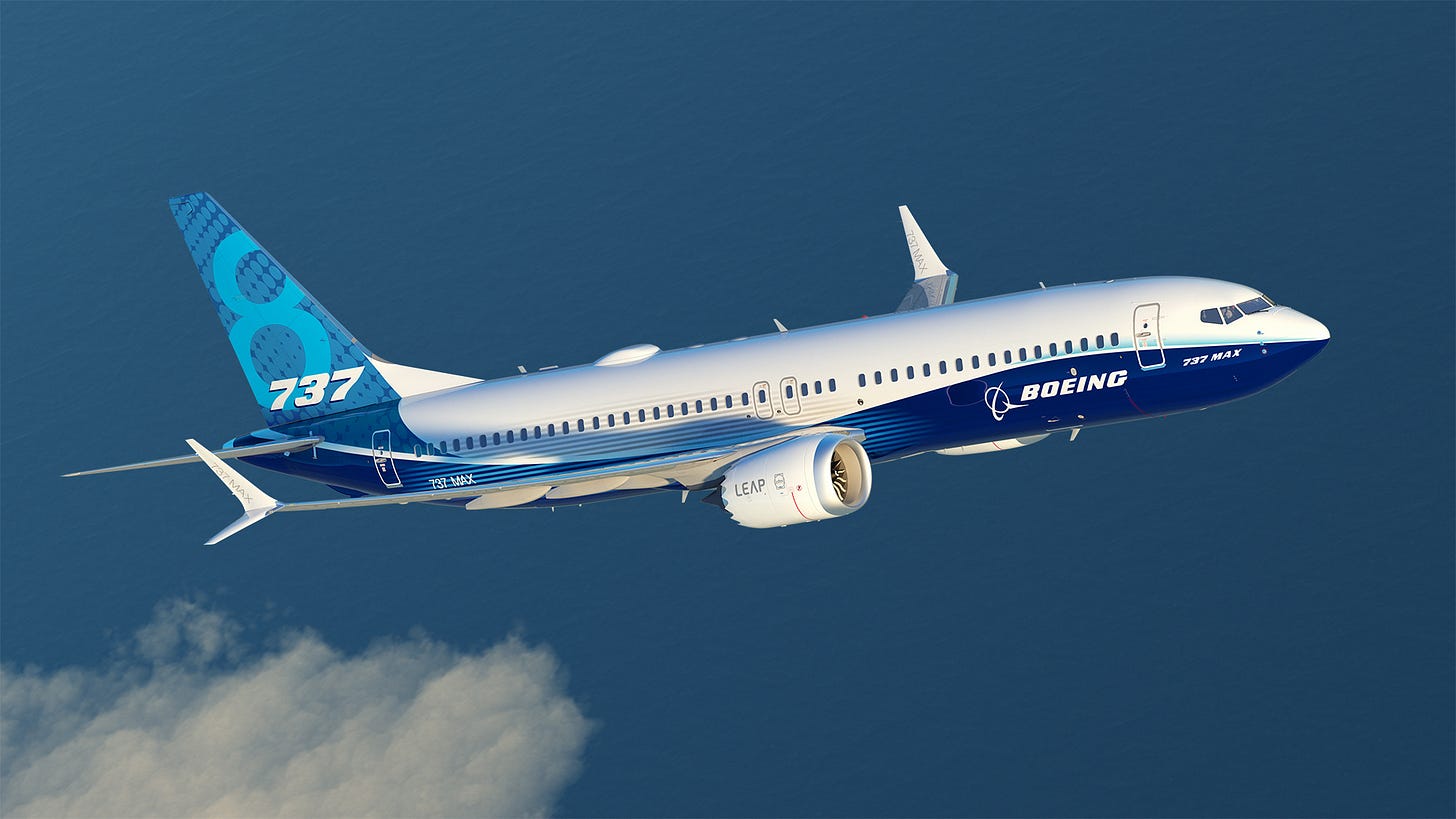
Murray Hunter
Tariff reductions or strategic retreat? Malaysia’s Boeing deal raises alarming questions
P Ramasamy
Aug 02, 2025

Trade, Investment and Industry Minister Tengku Zafrul Aziz proudly claimed that Malaysia did not cross any “red lines” in negotiating the recent reduction of US tariffs—from 25 percent to 19 percent. Together with Prime Minister Anwar Ibrahim, he painted a picture of tough, principled bargaining that delivered results without compromising national interests.
However, this narrative quickly unraveled.
In the same breath, Zafrul admitted that one of the conditions for the tariff reduction was Malaysia’s agreement to purchase 30 Boeing aircraft, valued at US$9.5 billion, for the Malaysian Aviation Group (MAG). The order—placed as early as March this year—includes 18 Boeing 737-8 and 12 Boeing 737-10 planes.
It is not only Malaysia that has been pushed into such purchases. Other countries that received tariff relief from the US have reportedly made similar orders. Still, it is deeply troubling that Malaysia was effectively coerced into buying Boeing planes just to satisfy Washington’s terms.
Aircraft procurement should be driven by national interest and value for money. Whether from Boeing in the US or Airbus in France, Malaysia ought to have pursued an open tender process to ensure competitiveness and transparency. Instead, it appears that the deal was dictated more by geopolitics than by sound economics.
This situation raises a larger question: what other concessions did Malaysia make in return for the tariff reduction?
Anwar’s government has presented the tariff cut as a diplomatic victory. But the reality seems to be far more complex—and costly. There is no such thing as a free lunch with the US, especially under President Donald Trump’s aggressive “America First” trade policy. For Malaysia, the price of lower tariffs seems to have been the erosion of sovereign decision-making.
This kind of transactional diplomacy reflects a new form of economic imperialism—one where tariffs are wielded as instruments of coercion to secure purchases of American products. In this light, Zafrul’s claim that Malaysia did not cross any red lines rings hollow. Forcing a sovereign country to buy specific goods as a precondition for trade concessions is, by any standard, a breach of those red lines.
It is time for both Anwar and Zafrul to come clean. Malaysians deserve to know the full extent of the concessions made in this tariff deal. Transparency is essential if public confidence in the government’s foreign and trade policy is to be maintained.
The issue here is not merely about trade or tariffs—it is about whether countries like Malaysia can truly chart an independent path in global economic affairs. Or are we destined to dance to the tune of powerful nations, under the guise of diplomacy?
As a Tamil proverb puts it: there must be a reason why the rat runs naked. The question is whether has been exposed naked in the tariffs reduction deal with the US?
***
DAP made a gross mistake in marginalising Prof. He's gonna be a perpetual thorn in the side of Madani
The 737 is a proven efficient , safe , economical short to medium haul aircraft that is already the core workhorse of MAS operations for a long, long time.
ReplyDeleteIt makes No economic sense for MAS to switch to A320.
Another case of Palani Ramasamy Hentam for Hentam sake, .or rather Hentam as part of his and Urinal grovelling to PN.
economic sense?
DeleteMfer, where is fair competition instead of arm-twisting deal down the bolihland's throat?
Ooop… business acumen meme-ed from yr heirloom factory!
You obviously have no idea of Installed Base efficiency.
DeleteIt is the same reason there is A ZERO probability of Air Asia buying Boeing aircraft or ever having fair competition for Boeing. Air Asia's entire fleet operation is structured around Airbus for both short haul and medium haul.
What fair competition?
It makes No economic sense for Air Asia to ever switch to Boeing.
So it is the same for MAS short haul fleet - it is based entirely around the Boeing 737.
Of course, you are just a CCP idiot.
wow… Installed Base efficiency!
DeleteSo so classical & a proven fallacy in modern business model.
Traditionally, one continuing buying from the same supplier due to common denominator in technical supports & part replacements.
But in modern business, thing oneself to just one supplier is akind to putting all eggs into a single basket.
A teal mfering circumstance of been have yr underwear tied into s knot by that single powerful suplier.
No complying, no replacement parts. No higher margin call, slow & delayed delivery.
The current microchip war has taught every businessperson worth the salt of his/her fortune, not to be arm-twisted into that corner!
Besides, any major incident, would have torpedo the who operation into stoppage, aka the recent Boeing 737 accidents.
That's why NO any viable international airline would just fly one kind of plane.
But do u know? Nay… sleep tight with ur heirloom in toe!
Bagus….Zafrul followed my advice to buy Boeings, but sadly no F16s or helicopters? If we had bought these then our tariff would be lower, about 10%
ReplyDeleteooop… when have a u become the maggot in the belly of trump?
Delete